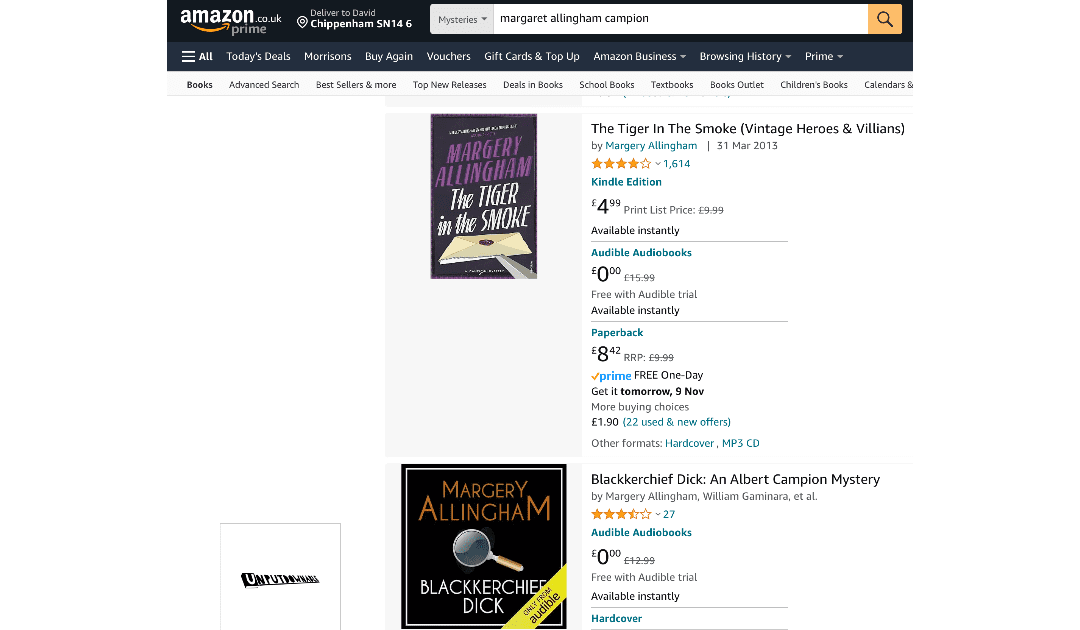I have just read The Tiger in the Smoke by Margery Allingham. It’s an Albert Campion Mystery. I posted recently about an article in Red Herrings, where she is noted as one of the four queens of the golden age of crime writing. According to Wikipedia, J.K. Rowling revealed that The Tiger in the Smoke is her favourite crime novel. That’s high praise indeed from the writer of the Strike novels. I can’t say I’m surprised, I can see some similarities.
Albert Campion is said to be a reflection of Lord Peter Wimsey, Dorothy L. Sayer’s detective. Campion is the son of a viscount, with some royal lineage. From my reading of The Tiger in the Smoke, what he doesn’t have is any detective superpower. He doesn’t have the little grey cells of Hercule Poirot. Nor does he possess the forensic knowledge of human nature, gleaned from living in St. Mary Mead, that Miss Marple can bring to the case. What Campion does have are friends and connections, including many in the police force. The police are not bumbling incompetents. However the character with the Miss Marple skill-set is a clergyman, Canon Avril.
Allingham doesn’t steer us through the mystery hanging onto the coat-tails of Albert Campion. In fact he appears in less than half of the book’s pages. Actually I say mystery, but there isn’t really a mystery in the conventional sense of a whodunnit. I also posted recently about Columbo and his howcatchems. The Tiger in the Smoke is more thoughtful, more philosophical, more of a whydunnit.
A similarity I see with J.K. Rowling’s work is in the way they both weave multiple plot lines together. It’s exquisitely done. Underlying it is the theme of good and evil. Canon Avril, our clergyman with the forensic intelligence, is pitted face to face with our serial killer. I don’t think Canon Avril mentions God at all. But he does have this to say: ‘What is the soul?’ He enquired. ‘When I was a child I thought it was a little ghostly bean, kidney-shaped. I don’t know why. Now I think of it as the man I am with when I am alone. I don’t think either definition would satisfy the theologians.’ They discuss what I would call fate. The killer calls it the Science of Luck. Canon Avril calls it the Pursuit of Death, “facilis descensus Averno”, from Virgil’s Aeneid, the path to hell is easy.
What else can I learn from Margery Allingham’s The Tiger in the Smoke? Well, the descriptions are magnificent. “There is an odour about genuine violence, real menace, which tingles in the nostrils with a pepper which histrionics can never match.” I also love the writer’s humorous introspection, as shown in this line about a journalist: “In common with most writers, he had evolved his own technique for making bearable the drudgery of his abominable trade,”. The Tiger in the Smoke is a book that will stay with me. I commend it. J.K. Rowling is right, of course.

